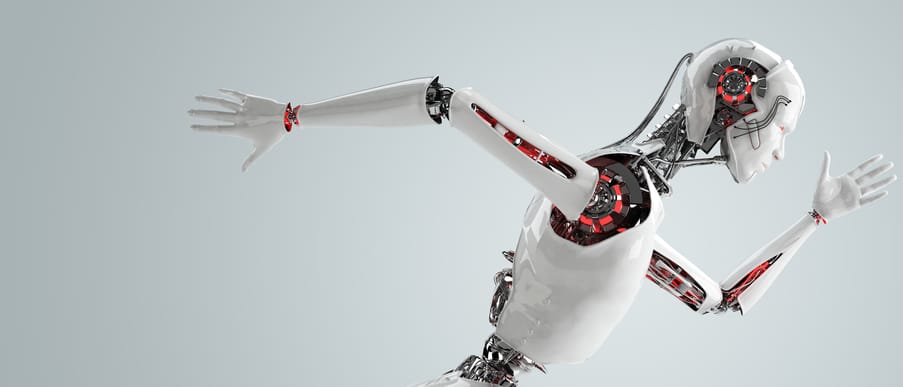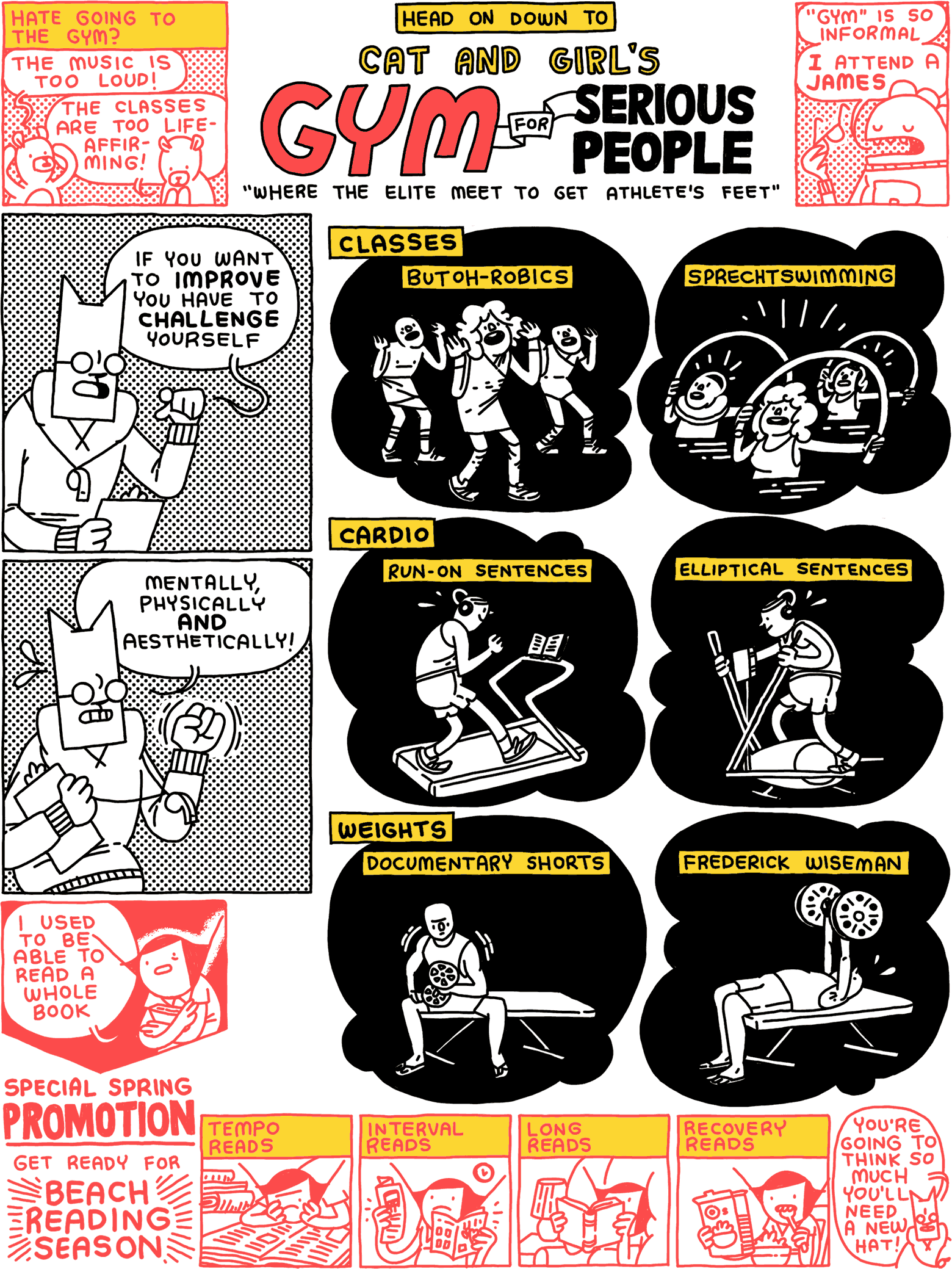You Don't Want AI Gadgets to Work

I didn't write anything last week about the Humane AI Pin, a new device that's part of the so-called "AI gadget era" – a pairing of all these purported breakthroughs in AI software we're witnessing with a new generation of AI hardware. The Humane AI Pin is a "wearable multi-modal device" – a camera, a mic, a speaker, a projector; an AI assistant, "a second brain" that clips onto your shirt. The Humane AI Pin is also, according to Marques Brownlee at least, "the worst product I've ever reviewed."
Of course, that doesn't stop the true believers (and tech journalists) who very much want us all to be amazed by all these (lackluster) products with (pretty pointless) usages. It sure seems to many of these folks like AI gadgets are a good idea, and I think it's a sure bet that tech companies will push these into health and wellness spaces as soon as they can, knowing that many people there have already been convinced to read deeply into meaningless, inaccurate, un-actionable data and to listen carefully to algorithmic prescriptions of when, where, how to move their bodies.
As the Humane AI Pin demonstrated, a lot of this AI stuff just doesn't work – and even if it did, we probably need to ask better questions what exactly that means. The complexities of human thoughts and human bodies cannot be reduced to transactional data – or maybe they can, but in doing so, I'd argue, we lose the poetry of life.
As such, "The First AI Gadgets Are a Cautionary Tale," writes John Herrman.
...as someone who has tried to keep up with the state of the art in general-purpose AI tools, it sounds about right — there are tons of tasks for which the current generation of AI chatbots is plainly ill suited, and however else this hardware might be materially or conceptually flawed, it also writes a check that the current and near-future AI software can’t cash. You don’t expect Google Gemini or ChatGPT or your meeting software’s chat assistant to answer a genuinely wide variety of context-dependent questions about the world accurately or with human intuition, in part because that would be unreasonable and unrealistic, but also because it’s not hanging from your shirt, suggesting that it can.
"Does It Matter That AI Doesn't Work?" asks The Deflector's David Roth. I mean, I saw enough updates from the intellectually and morally bankrupt ASU-GSV event this spring to know that, in ed-tech circles at least, the answer to that surely remains "no, it does not." The very folks who were convinced that the future of education would be MOOCs are here to sell you some chatbots. (We have been reminded this week that the administrators who were convinced by these very folks seem quite eager to not only rid campuses of professors, but of students as well.)
Speaking of bad people with bad ideas, here's Rick Perlstein in The American Prospect with part 1 of his three part series on billionaires he knows: "My Dinner with Andreessen."
Updates from another tech billionaire: Alexis Ohanian's 776 Foundation has invested in the Sports Bra, a women's sports bar in Portland which plans to expand to other parts of the country. His investment firm is also backing a women's track event, the 776 Invitational, which says it will have the largest prize purse in the history of the sport. Two observations: the first, I'm just going to credit his wife, Serena Williams, for all of this. The second, this is an investment. Women's sports are a bankable business now, and there are going to be a ton of repercussions.
I'm sorry, there are still more tech billionaire updates: The New York Times has a new "Style" profile of Facebook's CEO: "The Meta-morphosis of Mark Zuckerberg." "Kinder." "More accessible." Wearing a necklace. That sort of bullshit. Apparently, Zuck ran a 5K recently – "only 5 months after tearing ACL" – something that always seems to get Running World's attention. A celebrity with fast 5K that is, not a middle-aged guy who gets ACL surgery.
Elsewhere in health and wellness technology: Lifesum, maker of a "healthy eating" app, says that Gen Z and millennials prioritize buying "healthy foods" over paying for Netflix in "research" that's totally not suspicious at all. Also not suspicious: when former executives from Coke and Pepsi launch a new "clean energy drink." Despite being about one hundreds years old, Pilates has become the target of a lot of hype and investment dollars recently – perhaps buoyed by a number of celebrity endorsements of the workout regimen. F45 Training, for example, (the celebrity investor here is Mark Wahlberg) recently announced FS8, its brand of new Pilates + yoga+ circuit training. "No two workouts are ever the same," the company boasted, which is a dead giveaway that you're never going to make any progress with this modality. Nike laid off over 700 employees in its Oregon headquarters, citing a "softening" of consumer demand for its athletics wear. Meanwhile, a new report claims that the US has the world's largest "wellness economy," valued at $1.8 trillion. The country remains, of course, phenomenally unwell.

From the world of sports: An investigation by The New York Times found that top Chinese athletes tested positive for banned substances but were cleared by Chinese officials and allowed to compete in the 2021 Tokyo games, several going on to win medals. Earlier this month, Russian runner Ekaterina Poistogova-Guliyev was stripped of the silver medal she won at the 2012 Olympics after an investigation found her guilty of doping offenses. That moves American Alysia Montaño up to a bronze – the third time she has received a medal upgrade because it was later discovered her competitors were cheating. On Instagram, Kara Goucher notes how much winning a medal would have changed the trajectory of Montaño's career – prize money, sponsorships, endorsements, and so on – adding that she wants to receive her medal at the 2028 Olympic Games in LA, in front of her home nation. "Let's make this happen." Elsewhere in cheating: "The top four finishers of the Beijing Half Marathon have been stripped of their medals after an investigation found three African runners deliberately slowed down near the finish line to let a Chinese competitor win, according to organizers," CNN reports.
A new research study, commissioned by the International Olympic Committee, found that there are substantial differences in the athletic capabilities of cis and trans athletes – despite all the kerfuffle that we should ban trans women from sports because "it's not fair." Of course, banning trans athletes has never been about fairness. But as Katelyn Burns argues, at least this study can help rebut the common conservative argument that trans women's bodies are the same as cis males'.
Other things for men to complain about that just aren't fair: "The Only Girls’ Team in a Boys’ Soccer League Has Gone Undefeated."
The real threat to women in sports: men in power: "The Justice Department announced Tuesday it has agreed to pay nearly $139 million to victims of former Team USA gymnastics doctor Larry Nassar, settling legal claims brought over the department’s failure to investigate allegations that could have brought the convicted child molester to justice sooner and prevented dozens of assaults."
Running news: A few notable results from last weekend's London Marathon: Peres Jepchirchir set a new women-only world record, crossing the finish line in 2:16:16. ("Women's-only" here means that the elite women run a separate race from the men and the masses and have only women pacers.) Jeannie Rice, age 76, broke her own world record, running 3:33:27 – that's a faster pace than I'm expecting to run my half marathon on Sunday. Vintner Tom Gilbey raised more than £13,000 for charity, tasting and guessing a wine's name, vintage, and country of origin at every mile.
The Atlantic, ever-so-consistent with its bad takes, calls the increased interest in endurance running, particularly among those in their 20s, the "new quarter-life crisis." Runners know the real crisis though: the lack of public bathrooms.
One more noteworthy competition: Cooper Wallace, age 9, won the European gull screeching championship, and it's very rare I say this, but you really must turn the sound on for the video here.
A food and tech-related reading recommendation: The New Yorker on "Why You Can't Get a Restaurant Reservation." A food recommendation, because I too an in my tinned fish era: Fish Wife. Elsewhere in tinned fish, my cousin Marcus and his wife Rachel have a new podcast: How Was It For You? (The Times hates it, which is a ringing endorsement.)
Thanks for reading Second Breakfast. I'll be back on Monday with a podcast episode myself. If I survive Sunday's race, that is.





